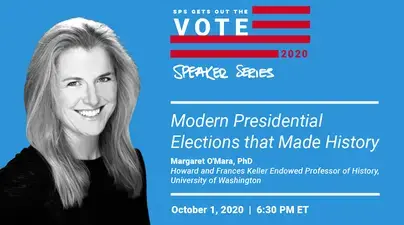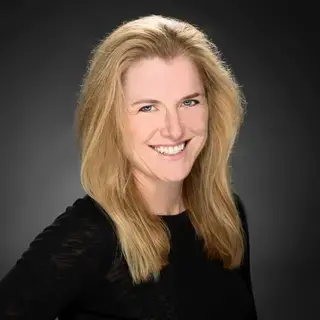SPS Election 2020 Speaker Series: Modern Presidential Elections that Made History

Join Margaret O'Mara, Ph.D., Professor of History at the University of Washington, for a look back at some of the most hotly contested elections of the past and what we can learn as we prepare for November 3.
Serious and silly, unifying and polarizing, presidential elections have become events that Americans love and hate. Today's elections cost billions of dollars and consume the nation's attention for months, filling television airwaves and online media with endless advertising and political punditry, often heated, vitriolic, and petty. Yet presidential elections also provoke and inspire mass engagement of ordinary citizens in the political system. No matter how frustrated or disinterested voters might be about politics and government, every four years the attention of the nation—and the world—focuses on the candidates, the contest, and the issues. The partisan election process has been a way for a messy, jumbled, raucous nation to come together as a slightly-more-perfect union.
About the Series
The SPS Election 2020 Speaker Series is designed to connect the School of Professional Studies, and the wider Columbia community, with important historical contexts for some of the pressing questions surrounding America's electoral environment. U.S. and international students are welcome to participate; an RSVP is required.
Learn more about how you can get involved with the November 3 general election by visiting SPS Gets Out the Vote 2020.
